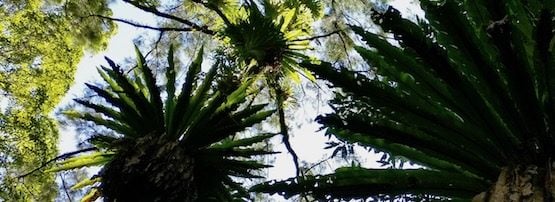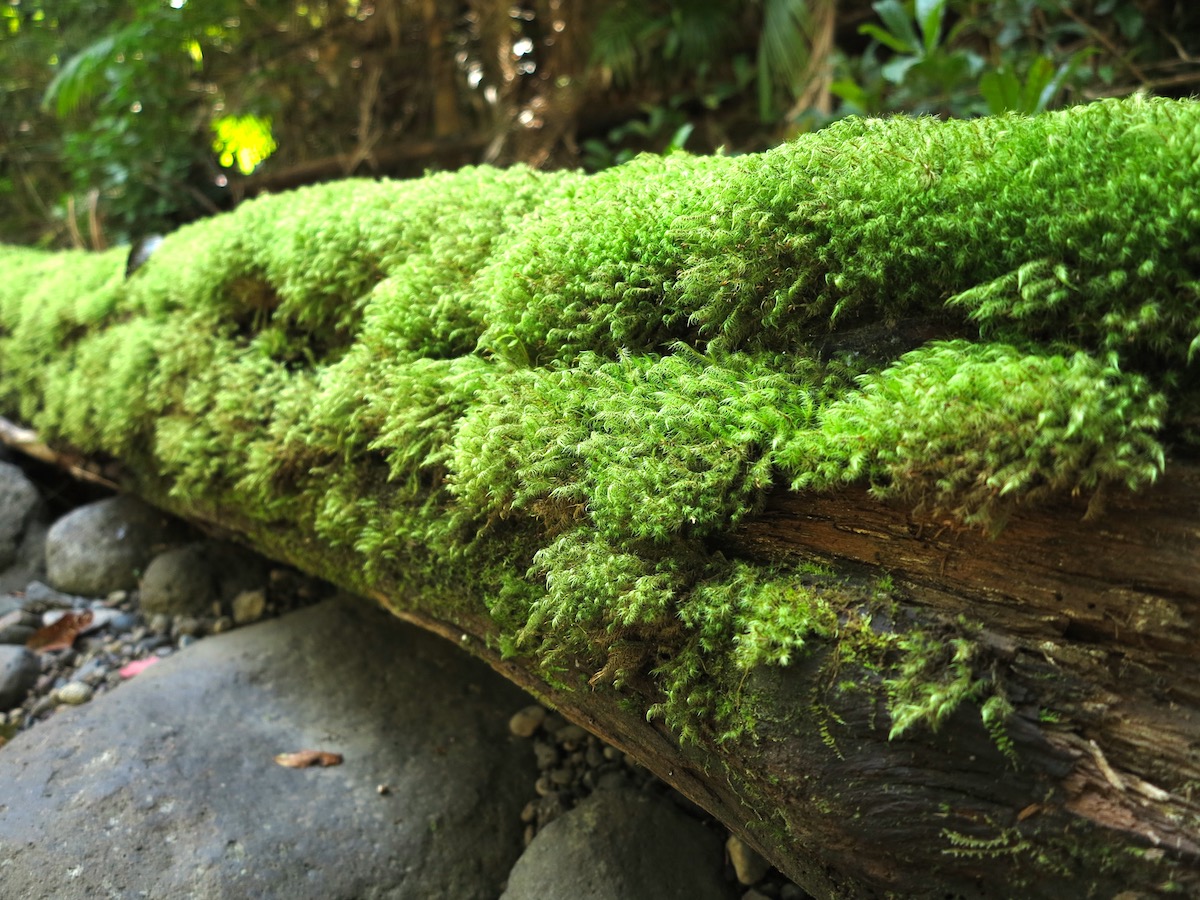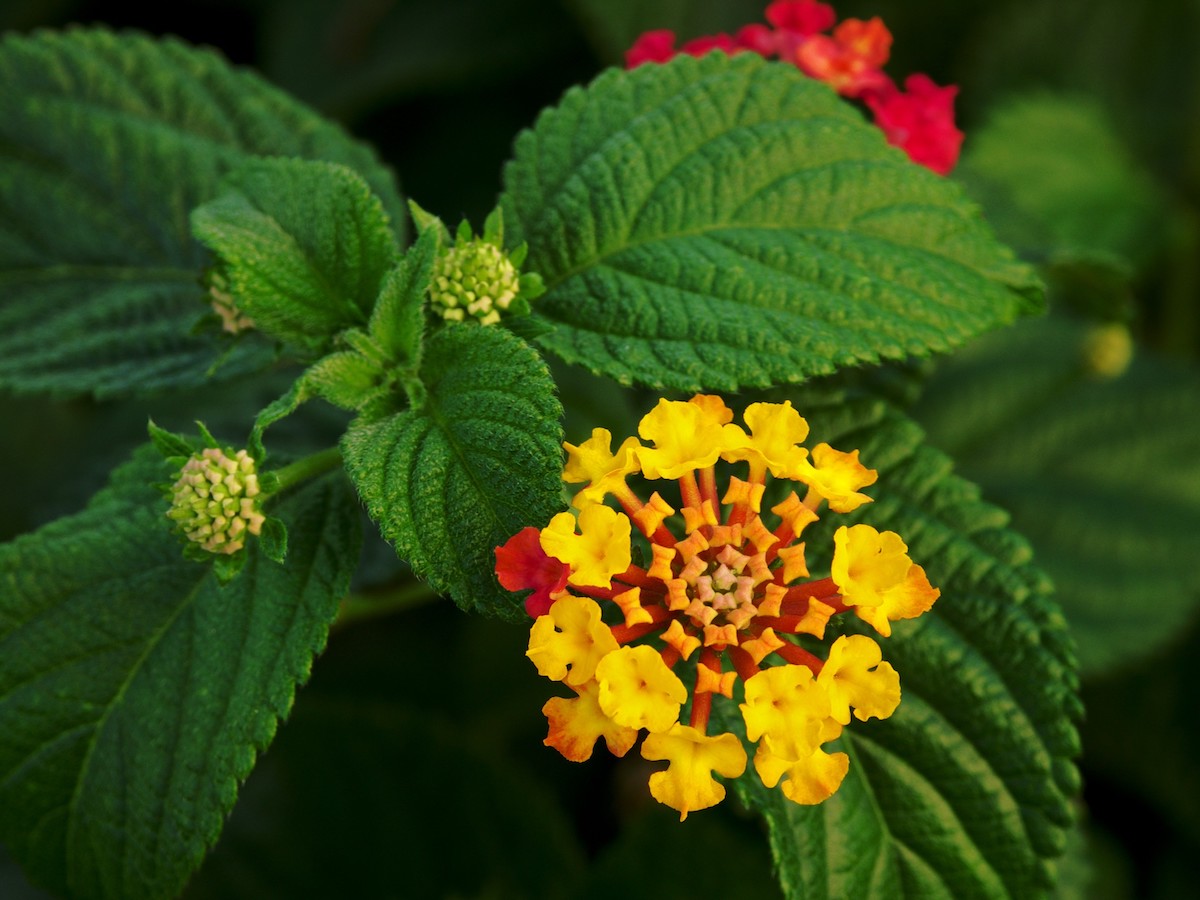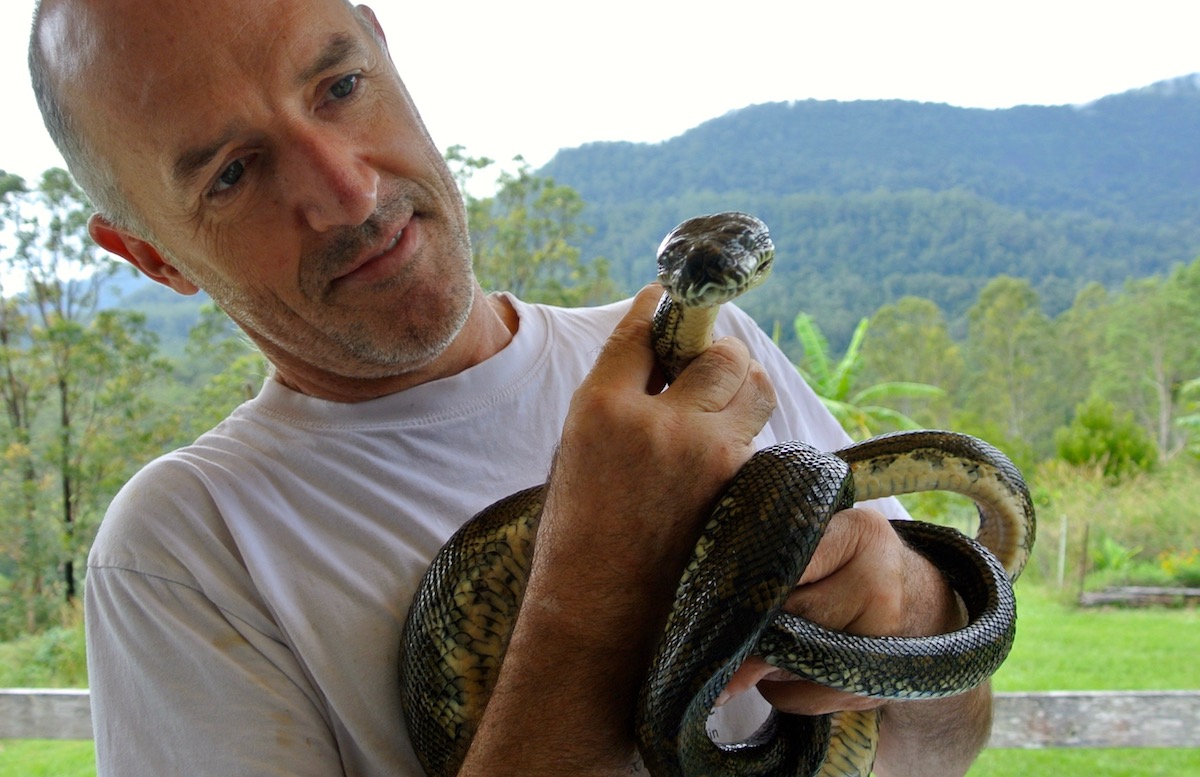
This is an edited transcript of APNIC Director General Paul Wilson’s keynote speech at the China Internet Conference in Beijing last month.
I came here to tell a personal story and I hope it’s interesting to you. It may not seem to be about the future of the Internet, but it is.
In my work I travel a lot and people often ask me if I get any time off at all, and what I do with it. Well I’m lucky that I do get time off, and mostly I “go bush”, as we say in Australia. That is, I spend time out of the city, in the bush, the countryside.
I’m very lucky that, around 15 years ago, I could afford to buy a “bush block” — a smallish block of land, of about 40 hectares, where I spend most of my time off. It’s in a fairly natural area, in the hills, two hours from where I live in Brisbane.
I say “fairly” because this land has been fairly heavily exploited over the years, most of the trees cleared; many species of plants and animals gone, lots of new weeds, and very much out of balance.
But it is regrowing, and for the past 15 years I’ve managed this land, trying to restore a healthy, balanced and diverse ecosystem. It’s a slow process day to day, but from year to year you see many changes, all happening spontaneously at different rates in different places, independently.
The thing is, the various species of plants and animals are different; also, the individuals of those species are different, independent individuals. In some areas, some individuals do better than in others, because they have different conditions, different neighbours, different resources.
You often see smaller ecosystems and “microclimates” emerge where health improves faster than others. It’s actually these “startup” systems that need to be encouraged, because they grow and feed the areas around them.
But when the balance is upset across the whole system, a lot of work is needed; some new species can be invasive and exploit their advantages (fast growth, lack of predators etc) to try very hard to take over. They can be more vigorous and strong, but often there are complex effects that favour them.
One of my weeds, an English lantana, attracts a particular bird, a native “bellbird” that is normal in the area. But this bird really likes to live in the lantana, and moves in en masse, driving out other birds. And those birds that are driven out are insectivores, so they leave certain sap-sucking insects to thrive, and these then kill quite a few trees.
So it seems nice for a while, because the bellbirds have a very unusual song, but soon, when the trees start dying, it’s not so great.
And worse, the dying trees allow more sunlight for the lantana to grow more. So without management (by me, for instance), that problem would only get worse and worse. Sometimes when things are out of balance, they only get more unbalanced, without any help from outside.
But when these “bad things happen” these normally are also from outside influence — introduced species, comets crashing down, or rapid climate change — and in these cases the ecosystem simply needs to cope. It’s where the health of the system matters a lot: the size, to ensure that local disasters don’t wipe out entire species; and the diversity, to ensure that if some species are wiped out, some are also spared.
If the system can’t cope, it dies, and this is where humans can come in and try to fix the damage.
What I have to be careful of in lantana control is unintended consequences. If I pull the lantana by hand, then it would take an army; if I use herbicides, then unknown other species die. The lesson we’ve learnt as humans, and continue to learn, is to be very careful in managing ecosystems, especially with respect to unintended consequences.
But these are exceptions, and natural systems are normally not managed or “governed” at all by any outsider; they are instead governed by what “naturally happens”, according to natural principles that apply spontaneously throughout the system.
It is not transactional — no member of the ecosystem needs permission to eat, breathe, or breed, nor to evolve or mutate. These things happen and the consequences are generally good — it is simply how the ecosystem works.
So why am I talking about this in an Internet conference?
Well, when I was young, I was torn between two different interests. I’d been exposed to the Australian bush and had a real interest in ecosystems, ecology, and conservation; I’d also encountered computers. I had to choose, computers won out, and I left the bush behind.
My interests did seem very divergent at that time — not easy to reconcile. And yet, over the years life took me from programming to networking, then to the Internet as an engineer and ISP operator, and then to APNIC, and at APNIC into Internet governance and the idea of an ‘Internet ecosystem’.
So I’ve taken very divergent paths to find myself involved in different ways with two different ecosystems!
But what I’ve found is, they are not so different. In fact, based on my experiences, I see the analogy of the Internet as an ecosystem as so powerful, and accurate, that I wanted to talk about it here today.
So what is an ecosystem, in fact?
Well, in biology, it’s a system of species that coexist together with mutual interactions that sustain life and diversity of species.
These can be large or small systems, with more or less diversity, but I think it’s well understood that in real biological ecosystems, the more healthy ones are larger and have more diversity, and are sustained without taking resources from others. With those features, an ecosystem is much more stable and more robust against the sorts of threats I mentioned earlier.
But in practice and in my experience, when intimately involved with an ecosystem, the species is one thing, and a useful categorisation. But it’s the individuals of the species that really matter. It’s the individuals that succeed or fail, respond to their local environment, take opportunities that are available, solve their own problems, and determine their destiny.
It’s the individuals, not the species, that breed and innovate (through inheritance or mutation), and that determine the future of their species. And this happens naturally, spontaneously, according to those natural principles. There is no “head office” for a community of plants or animals, for a species, or an ecosystem, and ecosystems have done very well without that kind of supervision.
But, what there is, is cooperation, whether it’s passive or active, among all the species and individuals of the ecosystem, and that’s very important.
So why do we talk about the Internet as an ecosystem?
For one thing, because there are many, many individual components — which can be grouped into a whole variety of categories and subcategories (such as species, genus, and family etc) that share features and that do interact.
There are users and service providers, businesses and business models, infrastructure components such as IXPs and CDNs, standards and the organisations that develop them at different levels (IETF, W3C, ITU IEEE), technical administrators such as ICANN, APNIC, CNNIC, and others.
These are the stakeholders and stakeholder communities that we talk about in Internet Governance.
More than this, the Internet has grown and operates in a distributed way, the way an ecosystem does, with any and all of the individuals working independently, but together in cooperation.
On the Internet, there has been little or no need, historically, to get permission to be an Internet stakeholder — just like in an ecosystem. Users can join, they can publish, they can build services and applications. They can form startups that grow to Internet giants, connect new devices, even propose new standards.
No one needs permission for any of this — they need only to follow some of the natural principles of the Internet, and then do whatever it is that they want to do.
On the Internet, species are replicated by following examples, but they also evolve, with successful individuals innovating and outperforming others, leading to better generations as time goes on. These can be seen in new generations of technologies, protocols, applications, businesses, regulations and policies appearing all the time on the Internet, all over the world.
And just like a global ecosystem, the Internet is global as well, and that’s very important because, as I said, the size of the ecosystem gives it more health.
Something interesting in my bush block is that it is not isolated. I am lucky to have a much healthier neighbour, a large National Park with a much more dense and diverse ecosystem. So in my case, much of the growing health and balance in my own property is coming naturally from my neighbour, in the form of species after species that come across, each one encouraging the next and contributing to the health of mine. It’s been fascinating to watch a natural permeation, like osmosis, as this effect naturally happens.
On the Internet, there is likewise also a migration of species. A new application permeates the Internet rapidly, new technologies, products and business models also spread globally without impediment. Even new regulations and policies are able to spread, as successes become known, as best current practices are duplicated.
So the Internet certainly looks like an ecosystem. It is an ecosystem and I am sure that if we see it that way we will be better able to manage it, to govern it.
So I want to finish with a few words on governance.
Do ecosystems need governance? Well, yes and no. As I’ve said, natural ecosystems often seem healthiest without outside influence, without catastrophic disruption, and without external human interference.
But then again, the advance of the human species has to do with governing ourselves and our shared ecosystem, to bring happiness and prosperity to ourselves. A noble goal, but even so, sometimes our “management” has involved exploiting and destroying ecosystems to the extent that we ourselves are threatened. We have not been very good at predicting those “unintended consequences”.
So these days a more benevolent term is stewardship (which is a synonym for governance in English, in fact), to describe it when an ecosystem is “managed” in a more harmonious way, nurtured not for special interests but for its own health.
Of course, on the Internet some active management may be needed, to ensure that, with continual disruption, the ecosystem stays healthy. This management would include, for example, competition policy to provide a level playing field (not that this is unique to the Internet at all), or the principle of “net neutrality”, which is promoted for the same reason.
And that’s a good example to finish with. “Net neutrality” is a governance initiative with noble goals, like the goal of restoring the balance of species in a natural ecosystem.
But as I’ve said earlier, the implementation of such goals (no matter how noble) needs to be taken very, very carefully. Like any ecosystem, the Internet is a complex and interconnected space, and unintended consequences can be hard or even impossible to predict.
What I advocate is to think of Internet governance firstly as Internet cooperation, a process of joint stewardship of the Internet. This is because, in this ecosystem model, it is not ‘governance’ that matters as much as genuine cooperation.
The Internet has a very long way to grow; and we cannot tell what it will bring in 10 years’ time. But we can be sure that with growth and change will come many more challenges, and it is very important that we are prepared to deal with those challenges in future.
We can take many more lessons from this ecosystem model, and I hope that here in China it seems as useful as I personally believe it is.
The views expressed by the authors of this blog are their own and do not necessarily reflect the views of APNIC. Please note a Code of Conduct applies to this blog.



